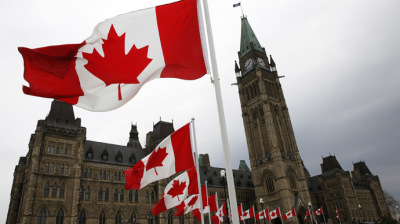Christian university in Canada fights accreditation ban for stance on homosexuality

Trinity Western University, a private liberal arts university in Langley, is back in court, this time at the British Columbia Court of Appeal. The issue being heard is the Law Society of British Columbia banning the accreditation of potential graduates of TWU's proposed law school because of the university's stance on homosexuality.
"We believe the stakes are very high," Bruce Clemenger, president of the Evangelical Fellowship of Canada, told The Christian Post. "The law society is not concerned about the academic requirements. TWU has a reputation for scholastic excellence and their proposed law school meets the Federation of Canadian Law Societies' rigorous academic requirements."
Clemenger said that the society is not concerned with the university's academics; rather, it is objecting to the institution's requirements that students and staff abide by a "Community Covenant," which, in part says, they should "voluntary abstain" from "sexual intimacy that violates the sacredness of marriage between a man and a woman."
"The issue is about beliefs, not abilities. It is the faith orientation, not the academic qualifications, that is being challenged," Clemenger said, and that he and the EFC "are very concerned about the implications of this case for religious freedom in Canada."
Last year, the Supreme Court of British Columbia ruled in favor of the university, but the Law Society of British Columbia filed an appeal with the British Columbia Court of Appeal.
The Supreme Court of Nova Scotia also ruled in favor of TWU, with Justice Jamie S. Campbell saying in an opinion, "The discomforting truth is that religions with views that many Canadians find incomprehensible or offensive abound in a liberal and multicultural society. The law protects them and must carve out a place not only where they can exist but flourish." The Nova Scotia Barristers' Society filed an appeal with the Nova Scotia Court of Appeal.
However, in Ontario, the ruling was against the university and in favor of the Law Society of Upper Canada. The Divisional Court of the Ontario Superior Court of Justice reportedly expressed in their ruling that the university's Community Covenant excludes certain persons from being accommodated at TWU's law school. The TWU filed a motion to appeal with the Court of Appeal for Ontario, which was granted.
According to Justin Cooper, executive director of Christian Higher Education Canada, the appeal in Nova Scotia was heard last month, British Columbia's is being heard at the moment, and Ontario's is scheduled for June 6-7.
"Decisions will likely be handed down early in the fall," he told CP. "It is also important to keep in mind that the federal law school accrediting body did approve TWU's program, and this has not been opposed by the other seven provincial legal societies."
TWU is being represented by the EFC, to which it is an affiliate, and the CHEC, of which it is a member.
 Christians don't have to affirm transgenderism, but they can’t express that view at work: tribunal
Christians don't have to affirm transgenderism, but they can’t express that view at work: tribunal Archaeology discovery: Medieval Christian prayer beads found on Holy Island
Archaeology discovery: Medieval Christian prayer beads found on Holy Island Presbyterian Church in America votes to leave National Association of Evangelicals
Presbyterian Church in America votes to leave National Association of Evangelicals Over 50 killed in 'vile and satanic' attack at Nigerian church on Pentecost Sunday
Over 50 killed in 'vile and satanic' attack at Nigerian church on Pentecost Sunday Ukrainian Orthodox Church severs ties with Moscow over Patriarch Kirill's support for Putin's war
Ukrainian Orthodox Church severs ties with Moscow over Patriarch Kirill's support for Putin's war Islamic State kills 20 Nigerian Christians as revenge for US airstrike
Islamic State kills 20 Nigerian Christians as revenge for US airstrike Man who served 33 years in prison for murder leads inmates to Christ
Man who served 33 years in prison for murder leads inmates to Christ


 Nigerian student beaten to death, body burned over ‘blasphemous’ WhatsApp message
Nigerian student beaten to death, body burned over ‘blasphemous’ WhatsApp message 'A new low': World reacts after Hong Kong arrests 90-year-old Cardinal Joseph Zen
'A new low': World reacts after Hong Kong arrests 90-year-old Cardinal Joseph Zen Iran sentences Christian man to 10 years in prison for hosting house church worship gathering
Iran sentences Christian man to 10 years in prison for hosting house church worship gathering French Guyana: Pastor shot dead, church set on fire after meeting delegation of Evangelicals
French Guyana: Pastor shot dead, church set on fire after meeting delegation of Evangelicals ‘Talking Jesus’ report finds only 6% of UK adults identify as practicing Christians
‘Talking Jesus’ report finds only 6% of UK adults identify as practicing Christians Mission Eurasia ministry center blown up in Ukraine, hundreds of Bibles destroyed: 'God will provide'
Mission Eurasia ministry center blown up in Ukraine, hundreds of Bibles destroyed: 'God will provide' Church holds service for first time after ISIS desecrated it 8 years ago
Church holds service for first time after ISIS desecrated it 8 years ago Burger King apologizes for 'offensive campaign' using Jesus' words at the Last Supper
Burger King apologizes for 'offensive campaign' using Jesus' words at the Last Supper Uganda: Muslims abduct teacher, burn him inside mosque for praying in Christ’s name
Uganda: Muslims abduct teacher, burn him inside mosque for praying in Christ’s name